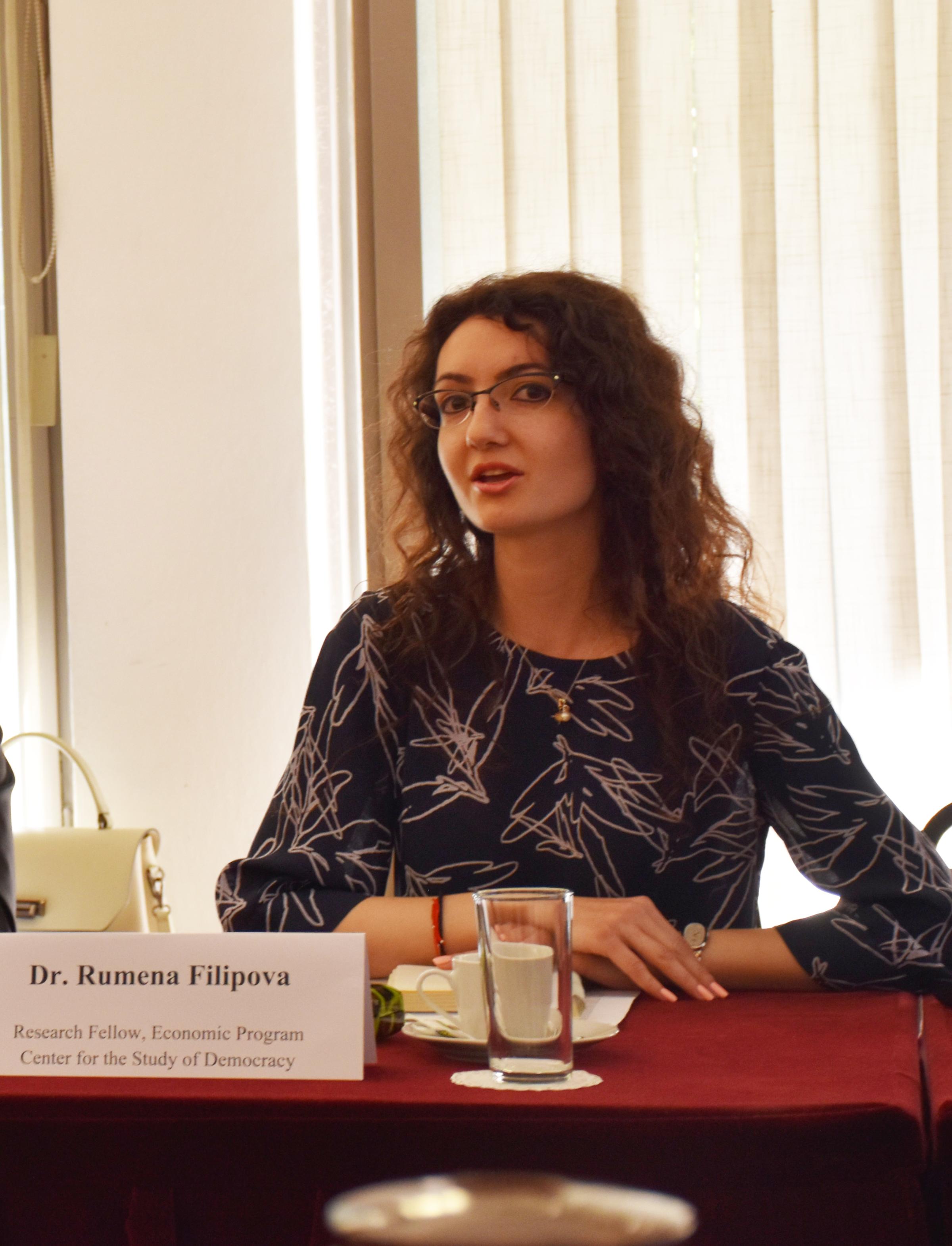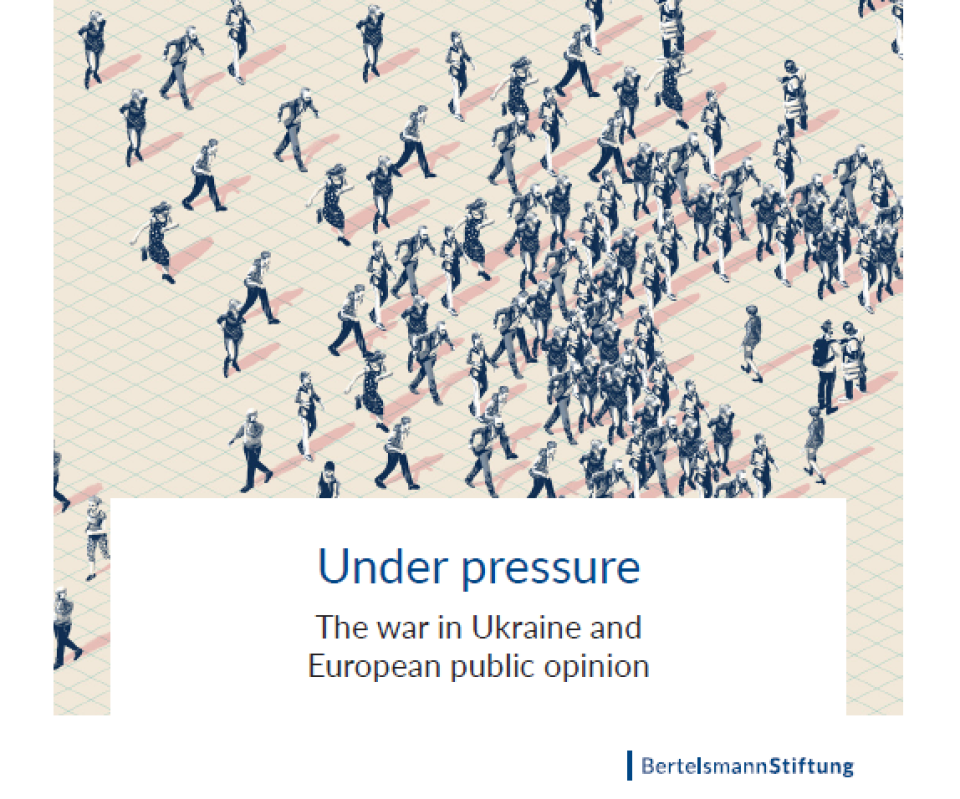
Battling Russian Disinformation Across Europe
Russian disinformation is increasingly influencing European public discourse, and in progressively sophisticated and subtle ways. The amplification of authoritarian narratives through online news sources contaminates the quality of public debate and threatens to undermine democracy. A coalition led by Sofia-based think tank Center for the Study of Democracy (CSD) and supported by Civitates seeks to improve the digital information ecosystem by examining the dynamics of Russian disinformation in five countries across Europe.
“As a pattern, Russia has a certain set of overall goals for disseminating its messages,” says Rumena Filipova, who is the research fellow at CSD coordinating the study. “But its tools of influence are increasingly working through local actors in a variety of ways.”
The project team is leading one of the first major studies examining Russian disinformation in both Western European countries and Central-East Europe, analysing the situation in Bulgaria, Poland, Czech Republic, Germany and France. Their objective is to draw conclusions about the comparative vulnerabilities of each country to Russian disinformation as well as to identify effective responses. The project will culminate in the publication of an evidence-based guidebook of strategies to combat disinformation, to be employed by a broad platform of governmental and civil society actors.
Joining efforts to increase impact
Founded in the early days of the post-Soviet era, CSD is a research-oriented non-profit organisation dedicated to the values of democracy, market economy, and social innovation. They are building on their pioneering work on Russian media influence to broaden their research through a web of partners across different countries.
“This really enabled us to make it more cross-European, which makes the findings more generalisable and valid, and to continue our track record of uncovering the political and economic enmeshment that promote Russian propaganda in countries across Europe,” says Filipova. “All of us share this enthusiasm about the project. Our main motivation stems from the comparative aspect: the most exciting part is to see that our countries exist within a broader context and to see the similarities and differences.”
Combining technology with people power
The project has joined forces with technology partner Sensika to increase the scope of its analysis of online news sources and social media. Their AI-powered tool is designed to study disinformation, particularly to monitor propagandist narratives in real time. It will examine massive amounts of data to look for trends in engagement metrics, complementing the researchers’ analysis of what messages are being promoted.
“What the technology provides is a larger scope in numbers, showing us the origin, impact, dissemination process of a given disinformation activity and also spikes in intensity,” says Filipova. “I think it’s a really good combination of what we can offer and what the technology offers. The trends they find can be combined with our more interpretive work, which is about the messages, about context, about the attitudes which cannot be so easily detected by a machine.”
Exposing Russian media ties
The project focuses on how four main themes are framed in public debate: the promotion of nationalism, anti-migrant attitudes, gender and misogyny, and economically liberal attitudes. One of the key findings emerging across the five countries is that economic and political trends and ties shape propagandist messages.
“The basic trend is the more politically and economically enmeshed a given local outlet is with Russian groups and interests, the more straightforward the way that Russian messages are pushed,” says Filipova. “One Europe-wide problem is the transparency of media ownership. This murky Russian influence goes through financial ties, economic ties and beneficial ownership of news outlets, and this has to be revealed to the public.”
Ever stealthier tactics
Russian tactics differ in each country according to historical relations and local political and economic factors. In Western Europe, the infiltration of Russian narratives into the media space can be difficult to recognise and expose.
“One main way our work in Western Europe furthers the cause of democracy in countries where it is threatened is to expose Russian anti-democratic narratives in those countries and what purpose they fulfil for the Kremlin because Russian narratives can be much more insidious there,” says Filipova. “It is important to show how Russia capitalises on disenchantment to further undermine liberal democracy, with the implication being that the Russian authoritarian model is better, and this facilitates cooperation with Moscow.”
Russian propaganda is constantly shifting strategies, focusing more and more on amplifying messages rather than creating its own. “So it’s both evolving and becoming less detectable as a result,” says Filipova. “It’s increasingly hiding its traces, becoming stealthier.”
Building a European network
The case studies for each country as well as a comparative analysis and policy proposals will be compiled in the guidebook to launch in Brussels this autumn. The event will gather diplomats, experts, media, civil society, think tanks and academics, reflecting the project’s holistic and cooperative approach. This will set the stage to continue broad engagement with stakeholders and create a policy impact on the European level.
“Working with a web of partners enabled us to make it our research into Russian disinformation more cross-European, and the findings more generalisable and valid.”
“So the project is both the analysis which will expose how Russia works but also the practical aspect, which is to build more connections, clusters of specialists both nationally and across the continent,” says Filipova. “Forming a Europe-wide network is the ultimate goal.”
More info
Civitates is a joint Philanthropic Initiative for Democracy and Solidarity in Europe, by a network of foundations, including the King Baudouin Foundation. It supports civil society organisations as they seek to boost levels of democracy and transparency in digital information ecosystems. The call of projects “Improving the digital information ecosystem” launched in April 2019 has given support to nine projects for a total amount of €1.24 million.
Other stories
Inspiring engagement!

Standing together for human rights and democracy in Bulgaria
Future of Europe
“Facing increased attacks on civil society organisations, people were reaching out to each other: we need to stand united.”
Other press releases

eupinions poll: European voters worry over cost of Ukraine war as support wobbles
Latest poll by eupionions, the European opinion survey tool, reveals that the European voters worry over the cost of the Ukraine war as support wobbles.

Europeans anxious but support Ukraine against Russia - Poll
December poll by eupinions, the European opinion survey tool, reveals that Europeans are anxious but still support Ukraine.

Europeans’ support for Ukraine is declining slightly
According to the eupinions survey, Europeans' support for Ukraine is slightly decreasing, but a large majority remains in favour of Ukraine's accession to the EU.